Charis Babcock - Zero Failures Business Focus - PODCAST TRANSCRIPTION
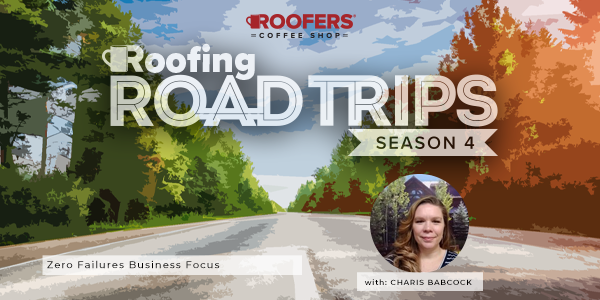
Editor's note: The following is the transcript of an live interview with Charis Babcock from Sashco. You can read the interview below or listen to the podcast.
Heidi:
Welcome to Roofing Road Trips with Heidi. Explore the roofing industry through the eyes of a long-term professional within the trade. Listen for insights, interviews, and exciting news in the roofing industry today.
Karen Edwards:
Hello and welcome to another Roofing Road Trips from Roofer's Coffee Shop I'm Karen Edwards. And today I am virtually road ripping over to Brighton, Colorado to visit with Charis Babcock brand manager at Sashco. Hi Charis, welcome to the show.
Charis Babcock:
Hi, thanks so much for having me today.
Karen Edwards:
It's great for you to be here. Why don't you introduce yourself to our listeners and tell us a little bit about you and what you do at Sashco.
Charis Babcock:
Yes. So as Karen mentioned, I'm Charis, I am the marketing manager over our log home products section here at Sashco. So we have two divisions, one for conventional construction and then the log home side. So I'm in charge of the log home side. I actually started at Sashco, I've been here are, oh, a little 17 and a half years now. Started out in customer service, having lots and lots of phone calls with homeowners and contractors and was able to use what I learned and move over into the marketing side of things. So I am now in charge of all of the marketing activities and programs and that kind of thing for both contractors and homeowners on our log side, but we do a whole lot more work with contractors than we do with homeowners.
Karen Edwards:
Wow. Well, welcome. I'm glad that you're here today because I'm really excited to learn more about a program that you have. And I first heard about zerofailures and I thought, oh, that means your product because you have such a great product that zerofailures, it's not going to fail. Contractors are going to be successful with it. And then I did a little bit more research and I learned that there's so much more to the zerofailures program and you're actually providing the tools for contractors to be successful in their businesses.
Charis Babcock:
That's right. So we started zerofailures back in 1998 and it was really born of wanting to reduce our liability. Believe it or not. I know that sounds a little bit self-serving but when it comes to log homes, it's a very specialty application. It is not like painting another structure. There is oftentimes a lot of log replacement that has to be done. And we found that a lot of contractors just didn't really even know how to get started on a log home project. And it meant that most of them ended up going to what we call OSU O-Sh university.
Karen Edwards:
Ooh. Yep.
Charis Babcock:
And we wanted to help reduce that. We knew that if we were able to educate them on the entire process of finishing a log home from beginning to end, it would mean success for them. And it would mean success for us and reducing all of our liabilities. So we partnered with another a contractor. We didn't want to do all the teaching ourselves. So we partnered with another contractor who had been doing log homes for a while and wrote the curriculum and started the class. And here we are, 21, 22 years later, 23, I can't even count 2021 to 1998. So I guess that's 23 years later. Having had hundreds of people go through this class and it's just been so valuable. And then three years ago, we, over the years we've had so many contractors comment about how they needed help with the business fundamental side of things.
Charis Babcock:
I'm sure much of your audience can relate to, I know how to work with my hands, I really enjoy working with my hands, but the whole idea of putting together a business plan, putting together a budget and growing my business based on the value of what I offer rather than paying from one job onto the next and funding the next job with the current job, that was a big problem. And really helping, them helping contractors set themselves apart from everybody else that they're competing with. And so we started the business fundamentals class to help contractors, number one, just run a better business from a financial standpoint, but also to help them find improvements that would help them do more with what they already have, because labor is always the biggest constraint. Labor is always the biggest constraint. You can't always find more people.
Charis Babcock:
And even if you can find more people, a lot of times it's going to cost more to keep those good people around. So how can I find improvements in what I'm doing now using Lean? What we call around here, Lean manufacturing, but Lean is not a new technique. It's been well known across the world for many years, but helping them apply it to their businesses. And it's just made a world of difference in the way that we are able to communicate with contractors and frankly, just helping them improve their businesses, helps us improve ours too. We are much better suited to come out with products and services to actually help them, rather than some idea that we come up with around these four walls. And, oh, let's hope that somebody likes it. Right?
Karen Edwards:
Right. Yeah. Because you're bringing contractors in, and hearing what their problems and pain points and issues are. So that helps you develop better solutions for those contractors.
Charis Babcock:
Absolutely.
Karen Edwards:
And I love your comment too. It's so true. A contractor is a very skilled craftsman and does good work, but doesn't necessarily have that knowledge and that training to run their business efficiently, profitably, and it's kind of trial by fire. You figure it out, you get burned in one area and you go to that OSU that you mentioned, university, and learn the hard way. And I think that by giving your contractors the tools to help them be successful, you're successful too. Like you said, you're developing the right products, your contractors are buying more products because they're selling more jobs and they're using more. So it's a win-win for everybody.
Charis Babcock:
Absolutely. And I think the biggest win is across the board. We love knowing that so many of our contractor partners are setting themselves up for the future. It's actually heartbreaking when we hear about somebody who is, 70, whatever, 75, a lot of these guys, they don't quit until they're 75. Because they just love doing what they do. But then they sell their businesses for the equipment and that's it. And there's so much more value there in their businesses with the relationships that they've grown over the years with different customers and vendors. And we want them to understand their value more. And so the business class has really helped them and the wood. So we teach a wood science class. It's all about the process of finishing a log home, understanding the science behind that, helps them to sell that to their homeowners and makes them more valuable.
Charis Babcock:
And it actually makes their business more valuable too, when you know why you're doing what you're doing, not just how I'm going to do it. And I've always done it this way. And I might know a little bit about, how to apply this product or why we, for roofers, why we put it under Lehman Auto or whatever you want to talk about with the technical side of things. When you can explain that to someone very clearly and differentiate yourself from somebody else, you can use that as value in your business later on when you sell it. You've put together a system of how to sell and that's worth something to someone. And if you keep track of your customers, that's worth something to someone. So helping teach the contractors at zerofailures, how to go about setting some of those things up.
Charis Babcock:
And we actually, everybody goes away with goals and we follow up with them on those goals. I'm a little bit of a stickler for accountability, but it's easy to come to one of those classes. Here I am, most of these guys they spent four days with us going through the wood science and the business focus class. And then if they go back and they don't have any goals that somebody is holding them accountable to, then the value of our class goes down too.
Charis Babcock:
So that accountability brings a lot of value to our class. And I hope, and I've been told, brings value to them too, because they know that Sashco is not just trying to get them in the door, hurting them in the door for the money for the conference and forgetting about them afterwards. We really want to see that they're being successful with what they've been taught. And we're always following up to see what's something new we can learn from them. The techniques that they bring to the class that they teach us is invaluable. We can have better conversations with them because we've learned what they care about and what they've learned and how they're improving.
Karen Edwards:
I think that, every building, every home has a roof, right? Whether it's a wood log home, if it's a office building and those, the key, there's critical areas between the roof, it was where it transitions to the rest of the building. So I'm sure that by coming in and understanding the science behind the wood and knowing that, oh, I do need to handle that transition differently between the roof and the side of the wood home, that really going to help contractors. And, and I'm wondering if you could tell me a little bit about who's teaching the science behind the wood?
Charis Babcock:
Right. So we actually have several people teaching. So our two senior chemists here teach about our products and a little bit about building science. It's funny that you, [inaudible 00:10:58] every year, right? Every home has a roof. Log homes are notorious for being inefficient energy wise, right at that joint between the roof and the log walls. And it's because logs move so much and they shrink over time and people don't account for that. The other reason is that so many log homes, they have those beautiful cathedral ceilings with the tongue and groove pine, and they haven't put anything underneath that tongue and groove pine between that and the actual roof structure to help insulate. And they lose so much heat under that. And then they call in a roofing guy and he's like, well, you really didn't follow great practices for construction. And it is a problem.
Charis Babcock:
So we have our chemists who teach about the products, but we actually have outside contractor by the name of Mark, who has both built log homes, and now is full time into restoration. And then we also have some people who teach thermography. And thermography is blower door to test finding those areas where there could be air leaks, and really informing our contractors on ways that they can go through and seal things up retrofit when it's necessary to bring in some other professional, especially professional roofer in order to help improve the energy efficiency of a log home. So we try to partner with a good number of professionals who know both log construction and our products in order to improve the buildings themselves and give the contractors, really set them up for success to make those changes when they come to a customer's house and they've had those complaints.
Charis Babcock:
So it's very important to us that we not be the only ones teaching. It's really important to us, that we bring in the people who actually do know what they're talking about. So that's really what we try to do in zerofailures. This is not a Sashco show. And in fact, that's one of the things when we first started out that we said, this is not going to be commercial for Sashco's products, because I can do that in a quick little webinar, or back in 98 before they really had webinars. We can have them in for an in person thing at a store, right.
Charis Babcock:
We still do those, but it was very important to us that it be about the science and be about the process and be about bringing in pros who know what they're doing so that they can be set up for success. Because again, I know I sound like a broken record, but their success is our success. And so I can't be successful at Zero, I can't be successful in my position here at Sashco. Sashco as company can't be successful unless we are setting people up to do things right. And that a lot of times doesn't mean anything about our products. So we're okay leaving the product conversation out in order to talk science and the technical, the building part of it.
Karen Edwards:
Excellent. I want to transition over to the business focus. I know Sashco is a family own business, and a lot of contractors are family owned businesses. So I understand that Les, your CEO does some of the teaching during the business session. And does he talk about that, about being your family business, but you're also the CEO, you're the owner, you're running this company and how to do that without fighting with your family members? Right.
Charis Babcock:
So both Les and Nick Birch, Les is CEO, Nick is actually our log sales manager. Both of them teach portions of the business focus class. And we do talk about that. How do you set yourself up as a family business and be successful? How do you avoid a lot of the pitfalls, the nepotism that could allow in somebody to do a job, and there are perhaps not the right person for that job. So how do you set your company up for success to do that? And so they do talk about that at zerofailures. And I think the phrase that we use a lot around here and that Les, Jeff, Nick have really set Sashco up for success this way. We are family owned and professionally operated. And what that means is, yeah, the family has ownership. They actually have two other people on the board.
Charis Babcock:
So it's not just family making the decisions. That's been one of the ways that they really professionally operate. They are making sure to get outsiders, giving their opinions and their thoughts and providing their expertise. So they don't get in a bubble. It's very easy to agree with your family and want to avoid some of that conflict that comes with a family owned business. So bringing in people who are not part of your family to the executive board makes a big difference when it comes to how the company is going to be run. And then the other part of that is hiring professionals to actually run the company, yes Les is CEO, but he is not COO. Jeff and Nick are not managed by Les, they have managers above them who are not part of the family. And they are held to the same performance review standards that anybody else in Sashco are held to.
Charis Babcock:
And it's funny because sometimes, this only happens once or twice a year when Les or Jeff or Nick will come into an all company meeting. And they have these hats that say owner hat, and they'll say, okay, I'm putting my owner hat on. And so we're going to have a discussion as owners, but the rest of the time they're functioning in their functional jobs, the way the rest of the company is. And I work directly with Nick, it's very easy to do. They've done a really great job of creating those boundaries. And I think that's probably the second thing professionally operated, but family owned and having very clear boundaries in place for how you are going to function in your functional role in the company. And we do talk about that at the business focus, because there's so much that can create conflict inside of a family owned business.
Charis Babcock:
And as long as you are open about that, and you have ways to deal with that, and you are set up to work through those things and have people come alongside of you and have those boundaries set up, it can be very successful. I think the other thing that the Burchs really did to set themselves up for success is that Les made sure that Jeff and Nick had experience working at companies outside of Sashco before they came to Sashco. And it provided them a different perspective. It provided them some of the experience that they just wouldn't be able to get at a family owned business because it is easy to just get pigeonholed by everybody. Oh, it's an owner. So he's going to be doing this one day. So we better have him do that. And so they were able to get experience out.
Charis Babcock:
Nick worked for Pepsi for a three years before he came to Sashco. And Jeff worked for an engineering firm for a few years before he ended up at Sashco. And both of them have moved around into different positions at Sashco as well, because we want to make, no matter who's working at Sashco, we want to make sure they're in the right seat. They want to make sure are there doing the right thing. And that goes for the owners as well. Les, for years and years was the CEO and also in charge of operations. And those two people who came in on their executive board said, you really need to hire a COO and not be doing this anymore. It's not your strength. It's not where your passion is. And so let's bring somebody in who is passionate about that to free you up to do the things that you are passionate about. And it's made for a much stronger company transitioned through that over the last, I don't know, five to 10 years or so, it's been so, and it's been very good for Sashco.
Karen Edwards:
That's excellent. I think that in addition to learning about that family dynamic and how to have those boundaries and those processes, that these zerofailures provide an opportunity for networking with contractors from different parts of the country. So you make those friends and you have somebody that you can pick up the phone and call and ask a question who isn't competing with you for the same job.
Charis Babcock:
Yes.
Karen Edwards:
You see that happen or yeah?
Charis Babcock:
Yes, absolutely. That happens a lot. And in fact, we always make sure to exchange business cards, but we also start an email string with everybody in that class. So they have everybody's contact information. They can give a call and say, Hey, if it's project related, I'm having an issue on this project. Or, the guy who teaches our wood science class, he came to business focus and made the decision to hire a business manager. He loves doing the hands on. He didn't want to do the business management side anymore, but it took a lot of changes in his mind to get him to that point where he is willing to let go of some of the business management side of things. So some guys have called him up and said, how did you make the leap to letting go of the business management side?
Charis Babcock:
And what did you learn at zerofailures that made it more palatable to you? We all, especially family owned, independent contractors, we're all a bunch of control freaks. We know that hands and everything, we want to control things. And at zerofailures, we talk a lot about taking that control and handing it off to other people, have a crew who can run things for you, really building them up to do those things for you. Not because they're not going to be done right, and done according to the way that you want them to be done in order to provide the highest value. But because you can take what you've learned all these years and what you've been doing and pass it off to somebody and build up more crews. And you're basically creating a way to multiply yourself. And that's a good thing. You guys do great work, you provide a valuable service to people. And when you pass that information and that knowledge along, you're duplicating yourself and making yourself more successful. And that's a good thing. You're leaving something behind.
Karen Edwards:
Every time you say, I wish I had one more of me. This is how you get one more of you, to clone yourself, duplicate yourself. I love that analogy. So now that we know all about zerofailures, tell me about how often do you have this? Yeah. How long is it? How do I sign up? I want to know more.
Charis Babcock:
Right. Okay. So our zerofailures, again, focused on log home finishing. We do it three to four times a year, generally in the winter and early spring, because that's when guys are not busier than a one arm paper hanger, right? Summer is the busiest time. You got to make hay while you can. So we try not to do a whole lot during the summertime. So it's usually October, November, we'll do one or two classes and then we'll do them again, January, February, March. I don't have dates set up for 2022 yet because Sashco is moving to a new building. And so, you talk about needing to duplicate. Well, we've got four people who normally have other job responsibilities who are all dedicated to our building move right now. And so I am resource constrained around here to do more zerofailures classes until we move into our new building.
Charis Babcock:
So I'm thinking it's going to be fall of 2022 when we do one again. And it's easy to sign up. You just go to zerofailures.com and you can sign up for our classes there. So I'm hoping to release new dates here probably in January, February, once we have a better idea of what's going to happen with our building move. And we are definitely interested in having people outside of log home finishing come to both the wood science and the business focus class. Because even though we're talking specifics of the wood, the science of wood and logs in the wood science, we're talking building envelope. And obviously that matters to a lot of your audience, obviously.
Karen Edwards:
Wow. That's exciting Charis, thank you for sharing that. We'll definitely have to keep our eyes out. And when that is available, we'll certainly promote that for you on Roofer's Coffee Shop.
Charis Babcock:
Absolutely.
Karen Edwards:
So is there anything that I didn't ask you that you think you'd like to add or that our listeners should know?
Charis Babcock:
The only thing that I would add is that prioritizing education for contractors is difficult. It's very easy to put that off to the side to say, get the minimum that you have to in order to maintain your license with the state. Right? But I would tell you that the more you prioritize your education, the more your business is going to grow and the more successful it's going to be. And grow with what you already have. Because sometimes contractors here grow the, I can't tell you how many contractors I've talked to who've like, I'm happy with the size of my business right now.
Charis Babcock:
Wonderful. But would you like to be able to pick and choose the jobs that you take rather than just taking every single job. Getting more education, especially around how to sell your services and how to value your services is going to be a life changer. Is going to be a business changer and it's going to make it so that when you get to that point where you're ready to retire, you're not selling your business for just the assets. This is not a fire sale. This is, I have an entire business with a clientele that I've built up, vendor relationships that I can pass off that is worth a lot to somebody who's going to be buying it. And you've now got yourself a bit more of a retirement plan. And so prioritize your education. It's very important and it's going to be a lot more valuable than you probably pay heed to it.
Karen Edwards:
Very well said. And I think it says a lot about Sashco as a company to put that kind of commitment into helping contractors be successful. So thank you guys for prioritizing education. Yeah. And thanks for taking the time today and going on this virtual road trip with me, we'd like to ask all our listeners, be sure to visit Sashco's directory on Roofer's Coffee Shop. That's where you can get the latest news and information about what's happening and maybe find out when the zerofailures class is going to be there for roofing contractors. And as always, we want everybody to listen to all of our podcasts because that's where you find out things like this. What's new, what's happening. Just visit rooferscoffeeshop.com, check out our read list and watch initiatives, you'll find all of our podcasts there or find us on your favorite podcast platform. Subscribe to be sure you don't miss an episode. And we appreciate you being here on this roofing road trip and we'll see you next time from the road. Thanks Charis. Bye everyone.
Charis Babcock:
Thanks so much.
Heidi:
Make sure to subscribe to our channel and leave a review. Thanks for listening. This has been roofing road trips with Heidi from the rooferscoffeeshop.com.



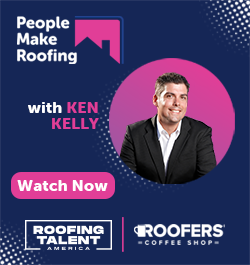









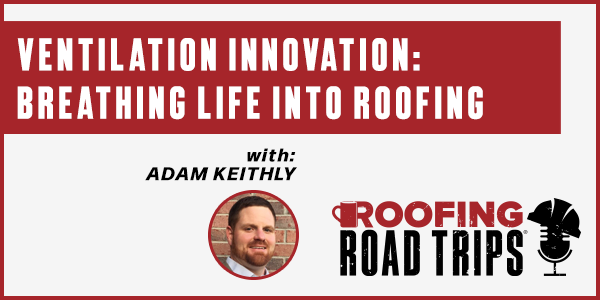
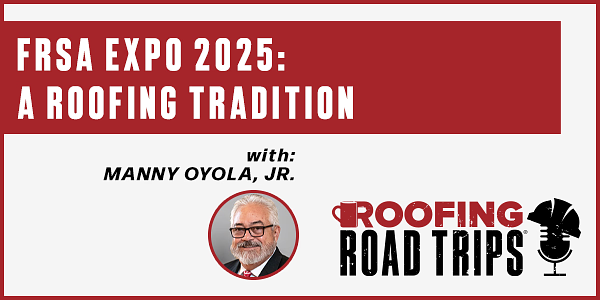


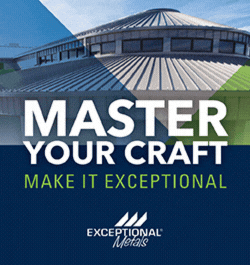
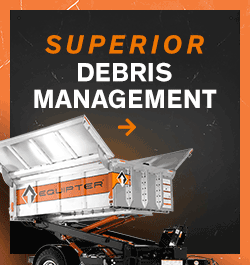




Comments
Leave a Reply
Have an account? Login to leave a comment!
Sign In